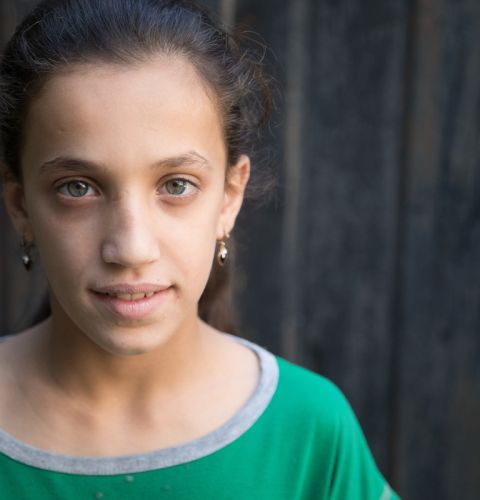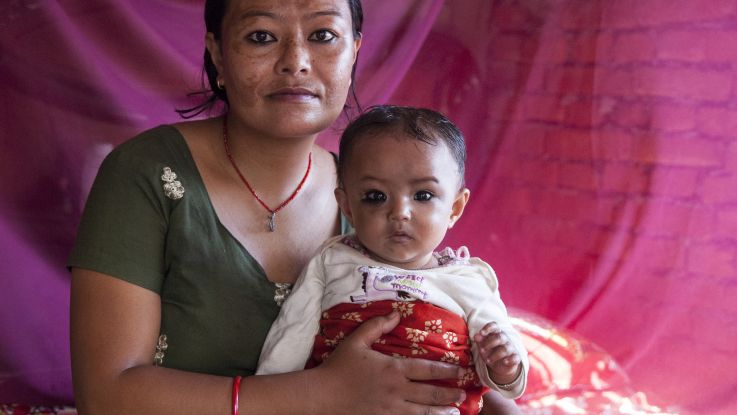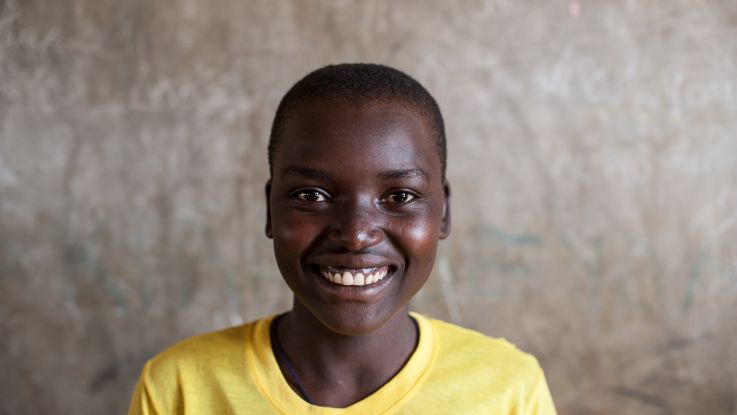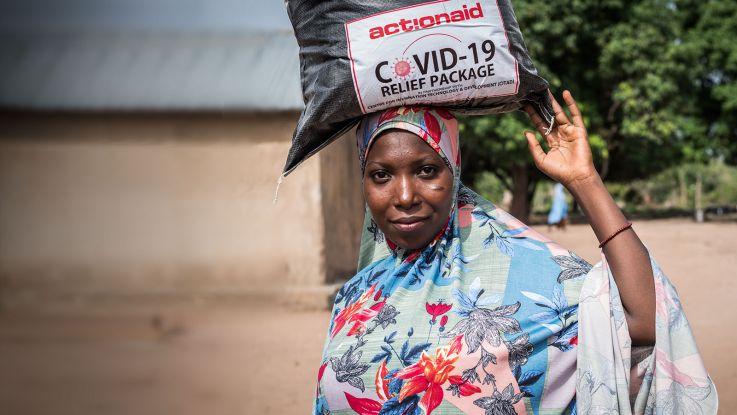Occupied Palestinian territory
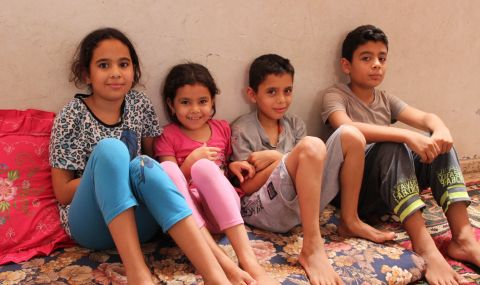
Nada, 11, her sister and two brothers in their home in Gaza. Through child sponsorship ActionAid has set up children’s clubs - providing a safe environment for Nada and her siblings to play, including emotional and extra-curricular support .
Why we work in Gaza
Since 2007, Gaza has been living under a blockade, meaning people and goods are prevented from freely entering and leaving Gaza by land, sea, or air. This severely limits basic necessities like food, medicine, and building materials from getting into Gaza.
The blockade makes life near impossible for the 1.8 million people who live there – 1.2 million of whom are refugees. Most people have little or no access to essential resources such as electricity, water, and sewage removal.
Half the population of Gaza is children. Many have experienced conflict for a large part of their life and are battling with severe trauma and emotional distress. And their education has been affected too: over 250 schools were damaged or destroyed in 2014 alone.
The blockade, repeated conflict, and increasing poverty has had a devastating impact on Gaza’s economy. Three out of seven people are unemployed, giving Gaza the highest unemployment rate in the world.
Why we work in the West Bank
Many Palestinians living in the West Bank are faced with little or no access to basic rights such as water, electricity, health, sanitation, education or livelihood, and are unable to build homes or infrastructure.
Palestinian people face systematic human rights violations including unlawful demolitions, forced displacement and arbitrary arrests and few have adequate access to legal representation. A system of checkpoints and closures severely limits freedom of movement.
More than a half million Israeli settlers live in 237 "settlements" in the West Bank, including East Jerusalem, all of which are illegal under international law.
What we do in oPt
The 2014 war on Gaza has caused thousands of children in oPt to suffer from post-traumatic stress disorder (PTSD). Years after witnessing bloodshed and destruction, many children still show signs of severe emotional distress such as bed wetting and nightmares. More than 70% of children worry about another war.
Through a partnership with Fekra Arts Institute, we give children psychosocial support in the form of a series of workshops focussed on art, drama and storytelling which help them deal with their grief.
Across oPt women have one of the highest education levels in the Middle East region, yet nearly three times more men are in paid employment. We help women to earn their own income by offering them the training and resources they need - from sewing equipment to business skills - and connect them with other women who need help so they can support one another in the long term.
Responding to the Gaza Crisis in 2021
Bombing in Gaza in 2021 meant thousands of people lost their homes, livelihoods and loved ones. Airstrikes destroyed apartment buildings, schools and a health centre that was providing Covid-19 testing and vaccines.
With vital services shut, ActionAid’s local staff and partners worked to distribute essential aid to displaced families, including:
- Blankets, mattresses, cooking gas, hygiene kits and nappies for babies
- Medicine
- Fuel for generators and mobile clinics
- Setting up safe spaces for women, and organising psychosocial support for traumatised children and their families.
Support communities during the Covid-19 pandemic
The occupied Palestinian territory has been highly vulnerable during the coronavirus pandemic: approximately two million Palestinians live in the Gaza strip and there are 19 refugee camps in the West Bank and East Jerusalem.
ActionAid has reached more than 145,000 with our life-saving projects, including the distribution of food packages and hygiene kits. We reached thousands of people with our youth-led initiative to disseminate public health messages and raise awareness about the prevention of Covid-19.
Women and girls have been hard-hit by the pandemic in the occupied Palestinian territory: there have been reports of increased levels of domestic and sexual violence. We’ve been offering legal and psychosocial counselling to survivors of violence.
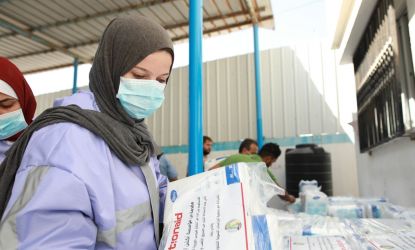
The distribution of supplies to vulnerable communities during the Covid-19 pandemic
ActionAid Palestine
Coronavirus in Gaza: Counselling survivors of domestic violence
As Covid-19 lockdown restricted movement, ActionAid Palestine and our partners reported an increase in calls about gender-based violence in oPt.
Under the restrictions, women were forced to stay at home, and their usual support services were closed. There was a 20% increase in calls, with the highest number of calls coming from Gaza.
ActionAid Palestine and its partner organisation SAWA have been providing psychosocial support for survivors of violence in Palestine, as well as distributing essential supplies like food and PPE.
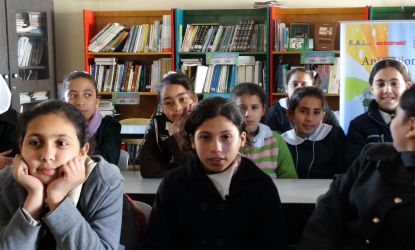
Hala attending an ActionAid supported workshop for traumatised children in Gaza
ActionAid
Children recovering from the trauma of war
Hala lives in a refugee camp, on the north-west coast of Gaza. She saw her cousins killed as they played on a local beach, and the trauma had stayed with her ever since. Insomnia, anxiety, aggression and depression have plagued her life.
Thanks to a local partnership, Hala was given psychological support though attending workshops where art, drama and storytelling help children deal with their grief. After 10 intensive sessions Hala's distress and anxiety subsided.
With much support and encouragement from her teachers and new friends, Hala started to draw and paint with enthusiasm. "We saw her beautiful smile. Hope appeared in her eyes," her social worker told us. Hala explained: "I remember what the teachers told me about leaving behind my fear and shyness. I became stronger and told the story of my cousins."
Sponsor a child like HalaPage updated 1 August 2024
